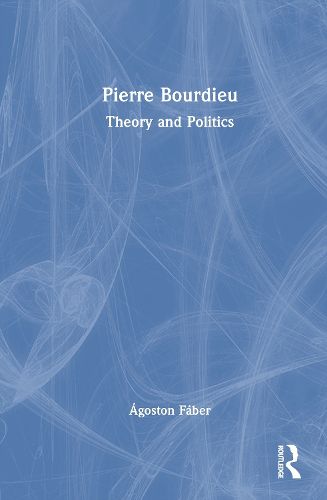Readings Newsletter
Become a Readings Member to make your shopping experience even easier.
Sign in or sign up for free!
You’re not far away from qualifying for FREE standard shipping within Australia
You’ve qualified for FREE standard shipping within Australia
The cart is loading…






Pierre Bourdieu is one of the most prominent and significant figures in 20th-century sociology. His influence remains substantial even after his death in 2002, and his views and findings continue to divide sociologists to this day.
This book examines the issue of Bourdieu's so-called "political turn," a significant topic in the French press and academic world. It explores whether the relationship between Pierre Bourdieu's increasingly visible political engagement from the mid-1990s and his earlier scientific work should be understood in terms of continuity or discontinuity.
To investigate this specific issue, it is essential to discuss some basic concepts and significant insights of Bourdieu's social theory. The book also considers the robustness of Bourdieu's theoretical framework and his criticisms of neoliberal capitalism from the perspective of Luc Boltanski's competing pragmatic sociology.
The book concludes that although Bourdieu, as a devoted left-wing intellectual, saw the possibility of resisting the neoliberal world order through mass mobilisation, inciting masses to collective action remains problematic within his sociological and anthropological framework. Through a systematic discussion of Bourdieu's theory, the book offers insights into the relationship between science and politics and hopes to provide an opportunity for a deeper understanding of his work.
$9.00 standard shipping within Australia
FREE standard shipping within Australia for orders over $100.00
Express & International shipping calculated at checkout
Pierre Bourdieu is one of the most prominent and significant figures in 20th-century sociology. His influence remains substantial even after his death in 2002, and his views and findings continue to divide sociologists to this day.
This book examines the issue of Bourdieu's so-called "political turn," a significant topic in the French press and academic world. It explores whether the relationship between Pierre Bourdieu's increasingly visible political engagement from the mid-1990s and his earlier scientific work should be understood in terms of continuity or discontinuity.
To investigate this specific issue, it is essential to discuss some basic concepts and significant insights of Bourdieu's social theory. The book also considers the robustness of Bourdieu's theoretical framework and his criticisms of neoliberal capitalism from the perspective of Luc Boltanski's competing pragmatic sociology.
The book concludes that although Bourdieu, as a devoted left-wing intellectual, saw the possibility of resisting the neoliberal world order through mass mobilisation, inciting masses to collective action remains problematic within his sociological and anthropological framework. Through a systematic discussion of Bourdieu's theory, the book offers insights into the relationship between science and politics and hopes to provide an opportunity for a deeper understanding of his work.